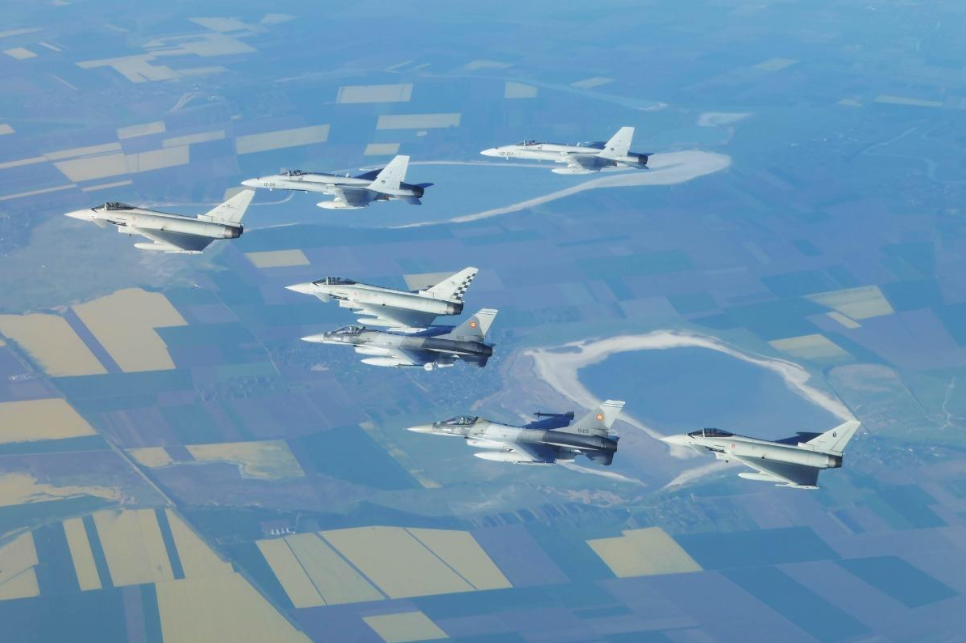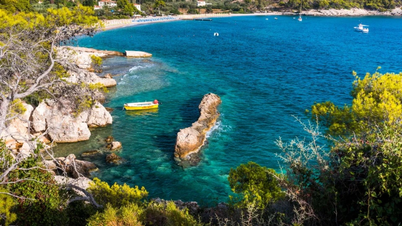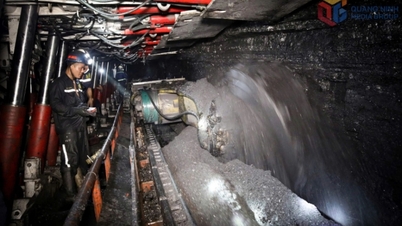The US Air Force's fifth-generation fighters, including the Lockheed Martin F-35 Lightning II, landed at Greece's Andravida Air Base, along with the Swedish Air Force's SAAB Gripen and the French Air Force's Rafale.
Along with Greek F-16 fighters, this powerful fighter squadron is preparing for NATO's Ramstein Flag exercise, an annual event in the Mediterranean country.
"Exercise Ramstein Flag represents the future of NATO exercises, focusing on modern and upcoming threats. We will use advanced tactics and deeper integration, leading to stronger deterrence," NATO's official website stated.
Scheduled to take place from September 30 to October 11, Ramstein Flag is a major NATO military exercise held in Greece, aimed at refining air defense strategies and enhancing operational compatibility between allied forces.

Exercise Ramstein Flag will see multiple waves of allied fighter and support aircraft take off each day to conduct combined air operations in a realistic combat environment. Photo: NATO
More than 140 fourth- and fifth-generation fighter aircraft, including F-35s, F-16Vs and Rafales, are participating in the exercise, which simulates realistic combat scenarios and enhances capabilities against modern threats such as missile attacks and advanced air defense systems.
Greece is hosting the Ramstein Flag for the first time, underlining the strategic importance of the event. Key bases such as Andravida and Araxos are important deployment points for military forces.
With advanced fighter jets such as the upgraded F-16 Viper and Rafale, along with land and sea units, Greece demonstrates its important role within NATO. This strengthens its position in the Eastern Mediterranean, an area important for stability amid rising geopolitical tensions.
But the scope of Ramstein Flag 2024 is not limited to Greece. NATO fighter jets are also stationed at strategic locations across Europe, including Germany and the Baltic States. These broader air exercises demonstrate the transatlantic alliance’s readiness to deploy quickly and defend against potential threats.
NATO's strategic defense efforts have expanded beyond Greece in 2024, with deployments to various key points across Europe. The Ramstein Flag exercise, for example, comes amid heightened tensions in Eastern Europe and the Baltic region.
To underscore the alliance's readiness, fighter jets have been strategically positioned in the Baltic states of Lithuania, Latvia and Estonia, highlighting NATO's commitment to protecting the airspace of its eastern allies.
Germany also plays a key role in these exercises, serving as a hub for training flights and coordinating allied air operations. By using bases in Germany, NATO can quickly deploy forces in crises, ensuring a strong defensive posture.
These exercises enhance interoperability between member states and reinforce NATO's unity and resolve in the face of security threats in Europe.
Minh Duc (According to Bulgarian Military)
Source: https://www.nguoiduatin.vn/dan-tiem-kich-hung-hau-cung-xuat-hien-tai-mot-nuoc-nato-204240927211315181.htm


![[Photo] Prime Minister Pham Minh Chinh inspects and directs the work of overcoming the consequences of floods after the storm in Thai Nguyen](https://vphoto.vietnam.vn/thumb/1200x675/vietnam/resource/IMAGE/2025/10/08/1759930075451_dsc-9441-jpg.webp)




![[Photo] Prime Minister Pham Minh Chinh attends the World Congress of the International Federation of Freight Forwarders and Transport Associations - FIATA](https://vphoto.vietnam.vn/thumb/1200x675/vietnam/resource/IMAGE/2025/10/08/1759936077106_dsc-0434-jpg.webp)






























































































Comment (0)